Sequels are hard. Sometimes the story or characters you adored just can’t carry over for another romp. That ship sailed and you’re left treading vaguely familiar water, feeling kind of icky and down and also waterlogged. “There’s something a little terrifying about picking up a sequel to a book that broke your heart in the way only the best books can,” Seanan McGuire recently tweeted. “No matter how good it is, it will lack that brilliant newness: it will be following a familiar channel.”
So, can a follow-up novel ever feel… novel? Luckily, McGuire found just that in Deep Roots, the upcoming sequel to Ruthanna Emrys’ Winter Tide—and it got us thinking about other sequels that rise to the occasion. The ones that defy the sophomore slump, and maybe even surpass their progenitors. Check out our favorites below—maybe you’ve got a few to share, too!
Fair warning: Some of these entries discuss spoilers in these beloved second books, so if you haven’t picked up these series, tread carefully!
The Restaurant at the End of the Universe by Douglas Adams
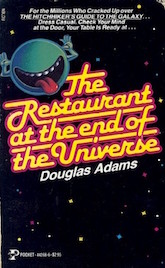 The wit and wonky hijinks of Hitchhiker’s Guide to the Galaxy are hard to match in any setting. Douglas Adams was a singular voice, and it showed in every page of that book, from the brain-melting alien poetry to the chipper spaceship doors to the thoughts of a whale and a flower pot both making their way to an untimely end. The idea of continuing that story, of replicating its perfect weirdness, seems like it should be impossible. But Restaurant at the End of the Universe does precisely that, and with so little effort that the whole exercise feels a bit criminal. There’s just something about going to eat somewhere your food asks which part of its body you would prefer to feast on. Or the realization that the Earth is a computer meant to answer the ultimate question of Life, the Universe and Everything. If you’ve ever been at a party that you didn’t want to leave, so you just kept that party going way past its appointed stop time? Then you know exactly what it’s like to read The Restaurant at the End of the Universe. —Emmet Asher-Perrin
The wit and wonky hijinks of Hitchhiker’s Guide to the Galaxy are hard to match in any setting. Douglas Adams was a singular voice, and it showed in every page of that book, from the brain-melting alien poetry to the chipper spaceship doors to the thoughts of a whale and a flower pot both making their way to an untimely end. The idea of continuing that story, of replicating its perfect weirdness, seems like it should be impossible. But Restaurant at the End of the Universe does precisely that, and with so little effort that the whole exercise feels a bit criminal. There’s just something about going to eat somewhere your food asks which part of its body you would prefer to feast on. Or the realization that the Earth is a computer meant to answer the ultimate question of Life, the Universe and Everything. If you’ve ever been at a party that you didn’t want to leave, so you just kept that party going way past its appointed stop time? Then you know exactly what it’s like to read The Restaurant at the End of the Universe. —Emmet Asher-Perrin
Kushiel’s Chosen by Jacqueline Carey
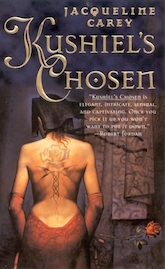 To be honest, after I finished Kushiel’s Dart, I wasn’t sure that even Jacqueline Carey could top herself. I imagine I felt the same as A Song of Ice and Fire readers did when picking up A Clash of Kings, wondering what could possibly follow up A Game of Thrones’ final page of Daenerys Targaryen stepping out of the funeral pyre with her hatched baby dragons—except here, it was an escaped Melisande Shahrizai returning Phèdre nó Delaunay’s blood-red cloak with an irresistible challenge: Come find me. After 800+ pages of witnessing Phèdre, a “whore’s unwanted get,” lose her only family in a brutal murder, fight her way through the deadly winter back to her homeland, confront the beloved patron who assaulted and betrayed her, survive getting flayed, lead her country to victory in war, and ultimately become the greatest courtesan in all of Terre d’Ange… where do you go from there?
To be honest, after I finished Kushiel’s Dart, I wasn’t sure that even Jacqueline Carey could top herself. I imagine I felt the same as A Song of Ice and Fire readers did when picking up A Clash of Kings, wondering what could possibly follow up A Game of Thrones’ final page of Daenerys Targaryen stepping out of the funeral pyre with her hatched baby dragons—except here, it was an escaped Melisande Shahrizai returning Phèdre nó Delaunay’s blood-red cloak with an irresistible challenge: Come find me. After 800+ pages of witnessing Phèdre, a “whore’s unwanted get,” lose her only family in a brutal murder, fight her way through the deadly winter back to her homeland, confront the beloved patron who assaulted and betrayed her, survive getting flayed, lead her country to victory in war, and ultimately become the greatest courtesan in all of Terre d’Ange… where do you go from there?
By having the greatest courtesan actually prove that her flesh-and-blood self lives up to all the epic poetry: show up at the Midwinter Masque sewn into the most daring of costumes to announce her return to courtly life, build a new household and business, fail spectacularly at keeping her beloved Joscelin from choosing any fate but a life with her, take on an array of new lovers in Terre d’Ange and La Serenissima. Oh yeah, and the killer mid-book reveal that Melisande was hiding under their noses all along, leading to a bleak, Count of Monte Cristo-esque island imprisonment for dear Phèdre, followed by dashing pirates and cathartic Hellene quests.
Kushiel’s Chosen by no means replicates the starry-eyed wonder of first lushness, lust, love, and control that young Phèdre comes to possess in her first 18 years of life. There’s no way it could, not least of all because it covers only about a year or two of young adulthood—but it certainly builds on that foundation, providing enough new supporting characters to taunt and titillate readers, and enough new experiences to bring Phèdre closer to the legend she promises to be by the end of the series. —Natalie Zutter
A Wind in the Door by Madeleine L’Engle
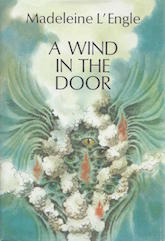 A Wind in the Door might be my favorite genre sequel. It could just be because I’ve had L’Engle on my mind as I anticipate Ava DuVernay’s adaptation of A Wrinkle in Time, but this was the one I kept coming back to. First of all, this book was like a warm brain-hug when I first read it. I’d missed the characters terribly after WiT, so seeing them again was lovely. So the way that L’Engle slowwwwly darkens the book, with Meg having an uncanny interaction at the school, and Charles Wallace gradually getting sick, is perfect. You thought you were safe, and the adventure was over, but no—the new adventure might be even more dangerous than the last.
A Wind in the Door might be my favorite genre sequel. It could just be because I’ve had L’Engle on my mind as I anticipate Ava DuVernay’s adaptation of A Wrinkle in Time, but this was the one I kept coming back to. First of all, this book was like a warm brain-hug when I first read it. I’d missed the characters terribly after WiT, so seeing them again was lovely. So the way that L’Engle slowwwwly darkens the book, with Meg having an uncanny interaction at the school, and Charles Wallace gradually getting sick, is perfect. You thought you were safe, and the adventure was over, but no—the new adventure might be even more dangerous than the last.
For those who haven’t read the book, it picks up about a year after the events of WiT. Meg is actually doing better in school now, with Calvin as her friend, and is now as worried about Charles Wallace as he used to be about her. The twins are still the twins; the family unit, restored by the children, is still going strong; and Meg and Calvin’s relationship is clearly proto-romantic, but neither of them are pushing that part yet. Best of all: one of the Drs. Murry has won a Nobel—Meg’s auburn-haired mother. The only dark spot is that since Charles Wallace has started school, he’s being bullied by both his fellow classmates and his teacher (she thinks he’s showing off each time he speaks in class)… oh, and there’s a dragon.
Over the course of the book Meg and Calvin learn that Charles Wallace is quite ill, and that their new adventure will take them inside his mitochondria in an attempt to save him. They’re guided by a giant being named Blajeny, and helped by a cherubim named Proginoskes (he’s the one who was misidentified as a dragon), and Meg’s old principal, Mr. Jenkins. As a kid I loved being back in this world, but looking at it as an adult I’m impressed with the way L’Engle builds on WiT’s themes. Once again Meg is called upon to use THE POWER OF LOVE, but where in WiT she admitted to herself that she couldn’t love the Big Bad, and had to settle for loving Charles Wallace, here she learns how to love both the prickly Proginoskes and her former principal—who also grows considerably from the jerk who was willing to bully a child. Plus L’Engle makes her idea of multi-level cosmic war that much more real by staging a battle in the cells of one of her characters. —Leah Schnelbach
Shadow Scale by Rachel Hartman
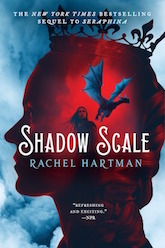 I loved Hartman’s Seraphina so much that it took me years to get around to Shadow Scale. I just couldn’t bring myself to take the risk that it might let me down. But I needn’t have worried. Shadow Scale takes all the charms of Seraphina and multiplies them, giving our half-dragon heroine a seemingly unbeatable antagonist who, it frustratingly happens, has the same goal as Seraphina: to unite their half-dragon peers. It’s just that her methods are rather … different from our girl’s.
I loved Hartman’s Seraphina so much that it took me years to get around to Shadow Scale. I just couldn’t bring myself to take the risk that it might let me down. But I needn’t have worried. Shadow Scale takes all the charms of Seraphina and multiplies them, giving our half-dragon heroine a seemingly unbeatable antagonist who, it frustratingly happens, has the same goal as Seraphina: to unite their half-dragon peers. It’s just that her methods are rather … different from our girl’s.
What this conflict means for Seraphina is the driving emotional force of Shadow Scale, but what really makes the book outstanding is how Hartman connects this conflict with the world her characters inhabit—a world that gets much bigger in this second novel. It’s a road story: Fina travels to different countries, trying to find her fellow half-dragons, who she’s only known through a mental connection. What she finds in each land is different: different ways of being, of living, of accepting or resisting life and change and different kinds of people. War hovers in the background, but so does love, in many forms. You can almost feel Hartman, like Seraphina, pushing against expectations. A prince doesn’t always have to wind up with a princess; a minor species of dragon doesn’t have to be minor; a mythology might not be built on the foundation that everyone believes. (Forgive me the vagueness of trying very hard not to spoil this for you.) Seraphina doesn’t just have to expand her expectations of the world, but of herself as well. The scope of Shadow Scale is world-changing, but Hartman keeps her eye on the vital role compassion plays in that change, whether on a personal or global level. —Molly Templeton
Which sequels have recaptured the magic of the originals for you?










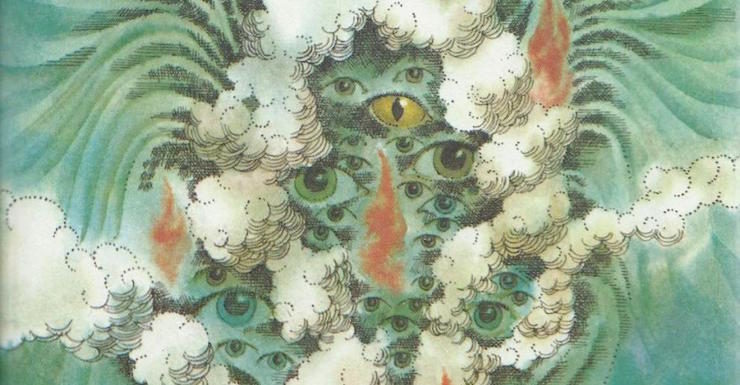
If “second in a series” books count…I liked Tanya Huff’s The Wild Ways considerably more than The Enchantment Emporium. EE was fun, but WW was fun *and* epic. Maybe it’s because I’m a Scottish music fan, or because I love selkies…and enjoy the North American versions of both.
And, reaching back to the earliest children’s fantasy books: in childhood and today, I enjoy E. Nesbit’s The Phoenix and the Carpet more than Five Children and It. Child-me found FCI a bit disappointing, since none of the wishes really works out as imagined for more than a short time. That almost feels preachy to me (be careful what you wish for!), even though Nesbit was never moralistic in the way most children’s writers of the time were. P&C was/is lots more satisfying to me. I missed the Psammead, but the phoenix was a great character, narcissistic but likeable. Nesbit’s magical creatures were insistently themselves, powerful and funny and difficult and never twee.
Also, wouldn’t you say that Through the Looking-Glass is better than Alice’s Adventures in Wonderland? TLG has almost all my favorite parts, including the Jabberwocky.
A couple that spring to mind for me: Edgar Rice Burroughs’ Gods of Mars, and Tanith Lee’s Death’s Master. In both cases, the author followed a really quite good but relatively standalone book with a sequel that greatly expanded on the promise of the original and laid the groundwork for more to come.
Josiah Bancroft’s “Arm of the Sphinx” (Orbit, out yesterday!) is equal to, if not better than the incredible “Senlin Ascends”
If you’re unfamiliar, please do yourself a favor and become acquainted with the incredible The Books of Babel series. They’re unlike anything I’ve read before.
Several. Dan Simmon’s the Fall of Hyperion, James S. A. Corey’s Caliban’s War, Alex Marshall’s A Blade of Black Steel, Sanderson’s Words of Radiance (though not sure if that counts because it’s not just as good as The Way of Kings, it’s far better), Lois McMaster Bujold’s (also outdoing her first novel) Paladin of Souls, and Steven Erikson’s (again, far superior sequel) Deadhouse Gates .
I remember thinking that the plot of Reflex, the sequel to Steven Gould’s Jumper, sounded awfully trite. Now his girlfriend can teleport too? Lame. But I loved it. I don’t know if I enjoyed it more than the first book, but it was incredibly enjoyable. The unique ways that David starts to use his power builds upon how he used it in the first book, but we also get to see how another character comes to terms with her own ability to teleport, and how she uses it to find her husband.
I would say Speaker for the Dead is at least as good as Ender’s Game, though also of course extremely different, so Orson Scott Card managed this to my surprise. Possibly also Connie Willie’s Oxford time travel series, though I sometimes get confused on their order anyway.
Kij Johnson’s Fudoki (sequel to The Fox Woman)
Robin Hobb’s “Royal Assassin.”
1) Foundation and Empire (if you take the approach that these are three novels; if you say they are three volumes then the best sequel is “The Mule”)
2) The Lord of the Rings (trite example but it is in fact a sequel)
and I am only being pedantic because I am married to a teacher but Proginoskes is a cherub; if you cloned him he would be cherubim…
@6, yeah, I was going to post something similar. Ender’s Game will always hold a special place for me despite the later revelations about the author (I first read it at a point where I was facing a lot of bullying in school, so it really spoke to me), but Speaker for the Dead was at least as good in totally different ways.
The rest of the series was trash, though I kind of liked Ender’s Shadow.
The Guns of Avalon, second of Zelazny’s Amber series. It came out after Nine Princes in Amber.
@9 Normally, sure, but L’Engle is very clear that in Progo’s case, he is a singular cherubim. He’s all wings and eyes and practically looks plural all by himself.
Dragonsinger and Dragonquest by Anne Mccaffrey are better than the first books!
N. K, Jemisin’s The Broken Kingdoms, a sequel to The Hundred Thousand Kingdoms.
Sofia Samatar’s The Winged Histories, a sequel to A Stranger in Olondria.
Kage Baker’s Sky Coyote, the second in her “Company” series.
Each of them is set in the same world as their excellent predecessors, but focusing on different characters and telling a different but equally excellent kind of story.
William Gibson’s Count Zero as the continuation of the Sprawl story.
Josiah Bancroft’s first two books are excellent, the second even better than the first. Yes, I am agreeing with 3.
“The Sword and the Chain” by Joel Rosenberg comes to mind; as does “The Long Dark Tea-Time of the Soul” by Adams.
Seanan McGuires’s Down Among the Sticks and Bones definitely needs to be on this list.
Adding a few I liked:
Startide Rising (Sure, Sundiver was fun, but Startide took things to a whole another level…)
A Deepness in the Sky (though I reread Fire Upon the Deep more often, that’s only because Deepness depresses me. Every. Single. Time. I love them both equally)
2010 (Yeah yeah a lot of people are not going to agree on this one. But I actually enjoyed 2010 more than 2001 when I first read it)
Yoon Ha Lee’s Raven Strategem, which surpasses the (already excellent) Ninefox Gambit by a wide margin.
I might be cheating a bit on this but all of the novels that followed Revelation Space by Alastair Reynolds (Chasm City, Redemption Ark, Absolution Gap, and the Prefect) made for great reading. Mind you, they did not necessarily follow the same chronology although they were located in the same spatial continuum. (There is also one new novel, Elysium that continues the Prefect, now called Aurora that looks promising).
Also William Gibson has published three loose trilogies whose middle books are all well done.
@6, @10
I came here to say the same thing. Ender’s Game was amazing, but Speaker for the Dead blew me away just as much. The mysteries surrounding the family, the pequinos, everything was so great. And Ender, the ultimate empath, was able to unwrap all of it so beautifully. It was completely different from the previous book but still so amazing. And the whole concept of Ender living long enough to see himself become the galaxy’s villain AND conscience was kind of profound.
I’d also agree with Connie Willis as well. To Think Nothing of the Dog was hilarious and even better than the first one.
Land of Oz (technically The Marvelous Land of Oz). It’s actually much better than Wizard (technically The Wonderful Wizard of Oz). Especially if the 1939 MGM Wizard has distorted the book for you (it was NOT a dream).
I must concur on Words of Radiance. Somewhat different than The Way of Kings, but even better. Also, each Mistborn Era 2 book is better than the last.
Looking ahead to May, when it will be published, I would highly recommend Jack Campbell’s Ascendant, the sequel to his very fine Vanguard, as a worthy addition to this list. I was lucky enough to read an advance review copy and am already ready to lobby to put it on next year’s Hugo list! https://www.goodreads.com/book/show/35839978-ascendant
I actually preferred, and read several times, The Swiftly Tilting Planet to either Wrinkle in Time or Wind in the Door, neither of which, for some reason long forgotten, appealed to me. I loved the idea of traveling through the past and through time on the back of a unipeg (the kids call them allocorns these days) in a race to fix Charles Wallace’s present. I have fond memories of that book.
Another follow up book which outpaces and out does the first in the series is The Dark is Rising by Susan Cooper. It’s aimed at older readers, unlike the book it follows, Under Sea, Under Stone, but I think Cooper has a much better grasp as to where she wants to go and how to get there. Two very different books.
Actually, I felt that Restaurant At The End Of The Universe was more like the second part of the same book than a sequel. In fact, I’ve read somewhere that Douglas Adams was past his deadline and they simply grabbed the manuscript off him as it was! ;-) . The series did start to go downhill after that, IMO.
A Court of Mist and Fury was waaaay better than A Court of Thorns and Roses (and also, sadly, A Court of Wings and Ruin).
I thought Shadow Scale moved surprisingly fast, but that’s only because I didn’t realize it was only going to be two books. Got a little whiplash at the end from the scope the books ended up at.
When I saw that Jonathan L. Howard’s sequel to Johannes Cabal was titled Johannes Cabal the Detective, I assumed that Howard was referring to Twain’s (to my knowledge) fairly unloved sequel to Tom Sawyer, and hoped he wasn’t trying to set expectations low.
It turned-out to be both similar and different to the first book, and does a good job of dealing with implications of important and spoileriffic events in the first. That is to say, Howard avoids the sameness that afflicts many sequels and avoids the sort of sequel that one suspects was originally unrelated but procrusteanated into a semblance of being in the series to help sales. The level of inventiveness was roughly the same as the first’s, and Cabal (as above) retains the charms marking him there without being completely unchanged….
@24 Shadows of Self is *miles* better than the Alloy of Law, agreed.
The Way of Kings was the first book I’d read by Sanderson. I loved it so much that I was sure I couldn’t enjoy Words of Radiance as much. What a delight it was to find I liked the second book even better!
@@.-@
> Dan Simmon’s the Fall of Hyperion..
Absolutely, the BEST! And of course the two sequels to Smale’s EAGLE & EMPIRE.
Finally catching up to this thread — Delia Sherman’s Changeling was fun (a bit light on plot), but The Magic Mirror of the Mermaid Queen is much better: a real story and a unique twist ending to a common YA-story problem. This may be hard to find but is IMO worth it.
I liked Dragonquest from the (ancient) Pern series as well as I did the first book. Which I liked best would be a flip of the coin.
There are some that immediately comes to my mind :
“The Empire trilogy” by Raymond E. Feist/Janny Wurts
The “Harry Potter” series by J.K. Rowlings
“The Raï-Kirah trilogy” by Carol Berg
“Shadowbride” and “Lord Tophet” by Gregory Frost